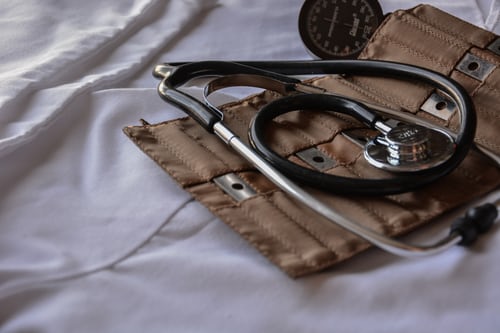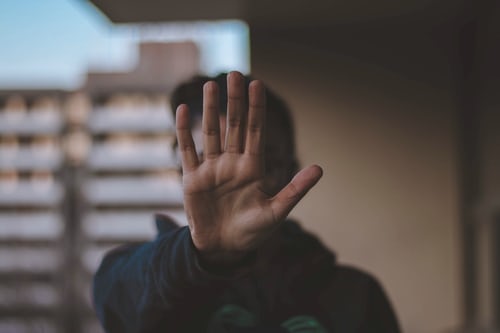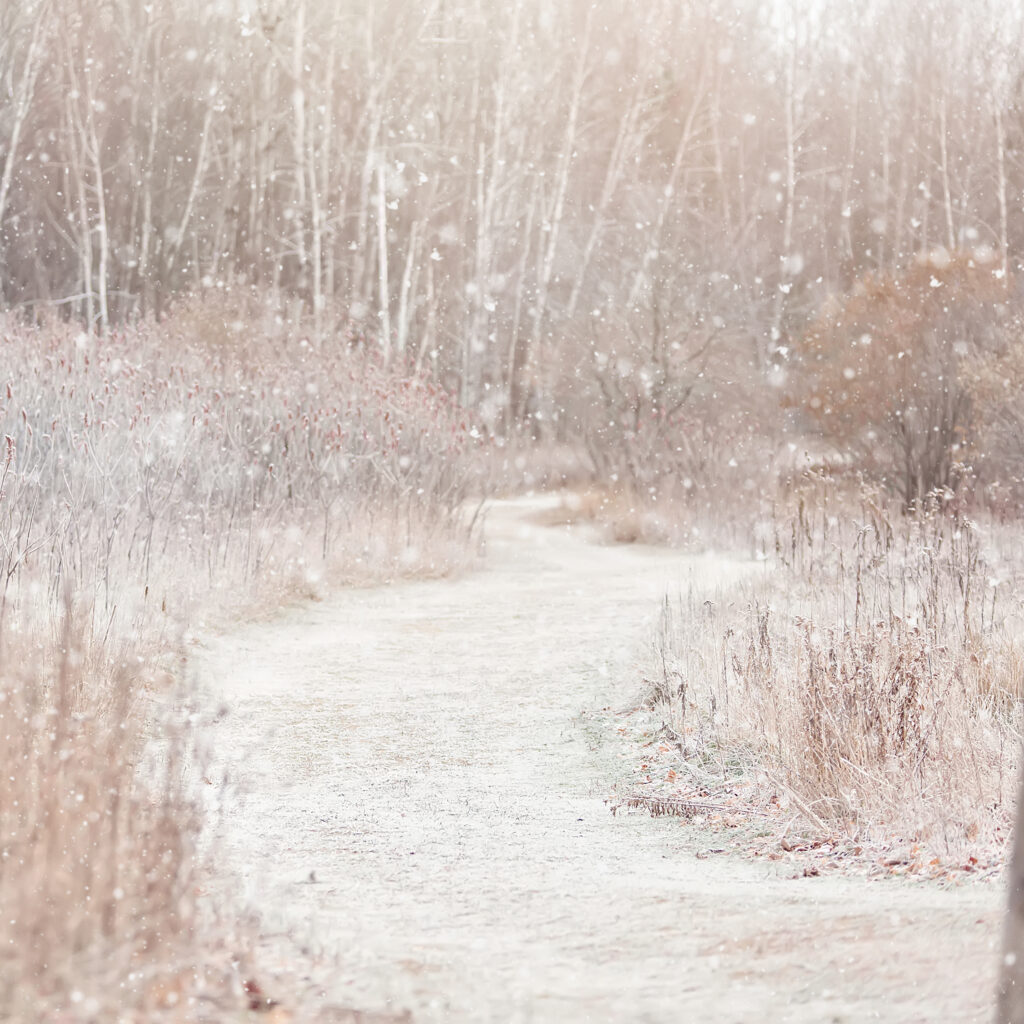My journey towards diagnosis has been a winding path full of false leads, careless misdirects, resistance, and acceptance.
Chronic Illness Diagnosis Impact
A chronic illness diagnosis isn’t like being told you have a common cold.
It is life-altering. At the very least it changes your understanding of your body. Most often it changes your trajectory and all those plans you made. It changes time.
What is time with a chronic diagnosis, anyway?
A diagnosis of cancer or dementia steals time away. Your life is like spilled wine running off the page before you’ve even found your words.
With chronic pain diagnoses, time moves like molasses. A slow, anguished creep through your days and nights.
With chronic illness, there is no comfort in time as an illusion. But meaning can be found in the present. In accepting your diagnosis; being open to the ramifications without surrendering to them.

My Journey Towards Diagnosis
A Diagnosis for What?
My journey towards diagnosis began over two years ago when my doctor concluded that my 43-year-old brain showed “patterns consistent with Alzheimer’s.” My world shifted on its axis that day. While that conclusion has proven to be premature, if not flat out wrong, it led to a cascade of events that have forever changed my life.
That day, my doctor and I were reviewing diagnostic images because of some cognitive challenges that were increasing in intensity and frequency. While these challenges were very real and impactful, nothing could compare to the struggles I began experiencing several months later immediately after a diagnostic test ordered by the investigating specialist.
Rapidly my world crumbled. Electrifying pain consumed my body. My senses rocketed into overdrive causing migraines, vertigo, and disorientation from the slightest movements or sounds. My ability to speak fell apart.
I eked out an existence in this terrifying state for almost six months without an explanation of what was happening to me. The practitioner who administered the fateful test denied wrongdoing. Maybe that’s accurate, maybe it’s not. I have no way of proving it beyond the clear onset of symptoms. Some other doctors tried to dismiss the torture I was going through. None of them had answers.
Finally, we discovered by accident a medicine that significantly reduced my pain and dramatically improved my speech. This medicine brought a reprieve that allowed me to come out of Level 10 survival mode. Thank God!

Misfire: A Diagnosis of FNSD
My journey towards diagnosis progressed further when I started seeing a neurologist who believes I am experiencing Functional Neurological Symptoms Disorder (FNSD). This is a chronic disorder where the brain looks structurally okay but clearly is not. The diagnosis confirms that the brain is misfiring, but cannot explain why.
Accepting a chronic diagnosis is a process that takes time. I resisted this FNSD diagnosis for a couple of reasons. First, it came across to me as “Yup, your brain is malfunctioning, but we have no idea why.” What heck am I supposed to do with that?
Second, FNSD has a sordid history of being called conversion disorder back when medical professionals were even less willing to admit they didn’t understand why the brain was misfiring. This pissed me off even though my neurologist has been very clear this is not how he sees my illness. He explains that my brain is like a computer and my illness a software issue rather than a hardware issue.
My Journey Progresses: Meniere’s Disease and Migraine
I still wanted an explanation for why my brain suddenly went haywire. I kept searching. And I kept resisting the FNSD diagnosis. Over the past two years, I have also received “slam dunk” diagnoses of Meniere’s Disease and Vestibular Migraines. Both of these illnesses also have unknown root causes.
As my journey towards diagnosis and search for root cause continued, many medical professionals overlooked and dismissed my symptoms. Cultural and legal expectations keep these medical professionals from straying outside their lane. So when my symptom presentation didn’t fit into one of their boxes, they made up B.S. answers to get me out the door and off their plate. Several doctors insisted I stop looking for answers and accept that “sometimes the brain simply malfunctions for no reason.”

My Brain Injury Diagnosis
Delayed recognition
At the same time, my primary doctor, my neurologist, and a couple of other practitioners have been steadfast in helping me find my way to better health. One practitioner has repeatedly explained that my brain shows evidence of a watershed stroke; a circumstance where, for some period of time, the top layer of my brain including the cracks and crevices was not “wet” enough. As a result, these areas have been damaged. They are either dead or misfiring.
Even though this practitioner has described the watershed stroke as a brain injury since August 2020, somehow it didn’t register. I connected the brain injury as an explanation for the FNSD, Meniere’s and Migraines, but didn’t recognize it as a diagnosis I could claim. Here’s why: I didn’t fit even into my own understanding of stroke and brain injury. I was never rushed to the hospital to clear a blood clot or stop the bleeding. And at the time of symptom onset, no blunt force caused trauma to my head. Though, head traumas in my past may have played a role in the earlier onset of symptoms.
Claiming my diagnosis
Then something clicked into place this past month. I started understanding the meaning behind my practitioner’s words. As I explored information on strokes and brain injury, I came across the Making Headway Podcast. This podcast is an awesome collaboration between Eryn Martin and Mariah Morgan who are both recovering from brain injuries. They interview both brain injury survivors and practitioners of alternative healing modalities.
I first listened to one of their survivor interviews. IT ROCKED MY WORLD. I didn’t even make it through without bursting into tears. After all this time, all the loneliness, all the questioning if what I was experiencing was real, I found a home. I found a community that understood. What Eryn, Mariah, and their guest Holly Kostrzewski shared resonated so deeply. They talked matter-of-factly about things I have struggled with as if everyone knows that these things are typical for brain injury.
For example, they spoke of the deep exhaustion that comes with brain injury. I have long intuited that my exhaustion was coming from my brain and cognitive stress. But so many of the doctors I visited denied this. Instead, they suggested such illnesses as Chronic Fatigue Syndrome and Fibromyalgia. Another has insisted that it is my weight and metabolism that are exhausting me. Sure the weight and metabolism may be contributors, but this exhaustion runs so much deeper and clearly correlates time and time again with my cognitive exertion. And metabolism does not explain my brain’s misfiring; the intense pain, hyper-sensory experiences, and speech issues (all of which medicine and lifestyle now control).

The feelings about my diagnosis
A storm of emotion rose from listening to the podcast. I cried tears of relief, gratitude, and validation. Relief for answers, gratitude for community, validation of my struggle. I wept for the ramifications, lost time, and lost connection. Ramifications of a long, winding road to recovery. Lost time focused on more healing modalities for brain injury. Lost connection with people who understand. I wrestled with the idea of being okay with not being okay. And as I sat with it, anger bubbled up too. Why the heck wasn’t this obvious to the trained professionals I had been working with? Why was it so hard for them to put the pieces together when, as I listened, I checked off symptom after symptom of brain injury?
In this part of my journey to diagnosis, the emotions were more than I could handle as the storm hovered for two days and I moved to process it all. I took a break and stepped away. I stopped listening to the podcast and reading #braininjury social media posts.
Over the past two weeks, I have been gathering my strength, my courage to think and speak of these things. Two nights ago, I went back down the rabbit hole of exploring stroke and brain injury. Again emotion flooded my body. Belonging is so powerful. I found elusive freedom in relatable words to explain what I am going through.
As I claim the brain injury and stroke labels, I feel like I am coming out after years of not knowing how to explain my experience in a succinct way that others could relate to and understand. Even my closest friends and family were a bit surprised when I started talking about having a brain injury. But when I gave them context, they too got it.
My Journey Towards Diagnosis Continues
My journey towards diagnosis is still incomplete. There is still so much I don’t understand and cannot yet explain. There is so much healing that remains. AND I have come so far in my recovery, awareness, and acceptance. At the core, knowledge is power. I am going to use this growing knowledge to deepen my understanding, advocate, connect, and heal.


I’m so glad you’ve discovered a community that shares and articulates your experience. That’s what it is like for me to go to AA meetings. No one else can understand me the way another suffering alcoholic does….And I always hear something at a meeting that is relatable and important for me to process. It is a journey, not a destination–comforting to know that there are people along the path who recover a day at a time! As Oggi used to say, “keep the faith”.
Thanks for your message Aunt Lynn! It makes sense that this resonates with you and how AA connects you in a similar way! One step at a time, keeping the faith!
Lots of Love,
Carrie